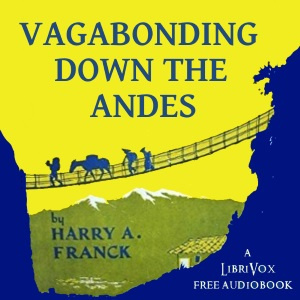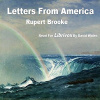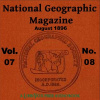Harry A. Franck - Vagabonding Down The Andes
Harry A. Franck
100%
Speed
Summary
Sometime in the latter half of 1911, Harry A. Franck jumped out of a box-car and crossed the Rio Grande, from Laredo. Thus began a journey, often afoot, that Harry estimated would take him 8 months. It ended up occupying four years of his life. The first leg of his Latin American epic is recorded in «Tramping Through Mexico, Guatemala, and Honduras; Being the Random Notes of an Incurable Vagabond» (The Century Company, 1916). He then headed south to the Canal Zone, Teddy Roosevelt's grand experiment in socialism, and applied within the Zone police force for a position as a census taker (chronicled in «Zone Policeman 88; A Close Range Study of the Panama Canal and Its Workers», The Century Company, April 1913). Since he was one of the few Americans who actually spoke Spanish, and a bevy of other languages, he was hired immediately. By June, 1912, he'd bankrolled enough money to see him through the opening phase of the work I'll be reading for you, «Vagabonding Down the Andes; Being the Narrative of a Journey, Chiefly Afoot, From Panama to Buenos Aires» (The Century Company, 1917). Leaving the Zone in June of 1912, with «objections to his reemployment», he caught a steamer and entered the South American continent at Cartagena, Colombia. Approximate 30 months later, having walked most of the length of the Inca highway, he staggered from a trek that took him over mountains and through raw jungle onto a ferry, and thence sailed into Buenos Aires, regarded as one of the most glamorous and expensive cities on earth at the time. This leg of the four volume epic (which later concludes with «Working North from Patagonia; Being the Narrative of a Journey, Earned on the Way, Through Southern and Eastern South America, The Century Company, 1921) was the longest one, and in many respects, „Vagabonding Down the Andes“ was also the most detailed. As you can see, the works were not published in chronological order. Why? I don't know, other than the last volume, which was delayed by Harry's enlistment and serving in WWI.Harry is an opinionated iconoclast with a strong American value system based upon self-reliance. He's both college-educated and what I suppose can best be called „street smart“, though most of his trip took him through places where „street“ was little more than an abstract concept. Before his South American journey, he'd already worked his way around the world, and had written a book about it (»A Vagabond Journey Around the World", The Century Company, 1910). Some people are going to get their Politically Correct dander up if they listen. Well, fast traveler, keep in mind that Harry was a man of his times, and thus he sees the world, as we are all people of our times, and thus we see and experience the world. Harry did his vagabonding with a pistol as his constant companion, and lived amongst the poorest classes of people. He drank water collected in the ruts of wagon wheels. Not knowing where his next meal was coming from was the norm, as opposed to the exception. In terms of travel writing he makes Paul Theroux look like an armchair dilettante. Take him as he is, and I think you'll soon become enmeshed in this extraordinary saga.
Written by Elliott Swanson, reader.
More from Harry A. Franck
More from Travel & Geography
Authorization
By logging in, you agree to the terms and conditions.













No comments